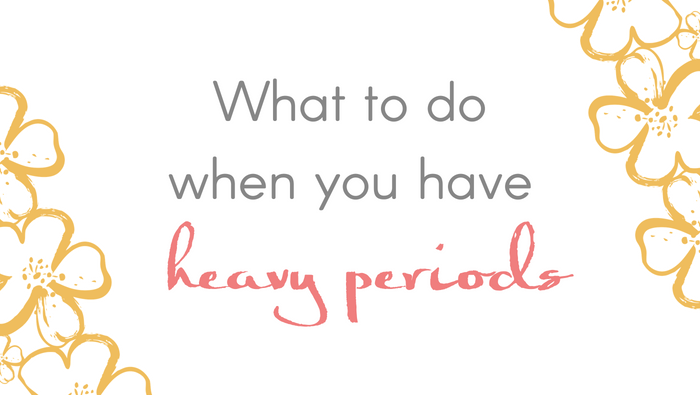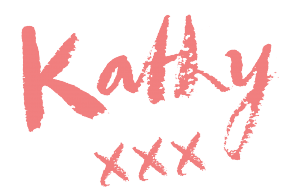You know the drill, sister?
You daren’t cough, sneeze or stand up suddenly, because you know there’ll be a flood of Biblical proportions?
You go to the loo and have to sit there for ages …not because you need a tinkle or even to poop. People have been known to knock on the door to make sure you’re still alive.
Or you’re up and down to the toilet all day long.
You plan your calendar very carefully because you can’t leave the comfort of your home on those days.
You take a spare pair of BIG knickers and a change of clothes “just in case” you get soaked right through and I’m not talking about rain.
At night, you sleep on a big towel to protect the bed linen… not that you sleep much; you get up a few times a night to change.
Yes, you have heavy periods. And it’s affecting your life.
I get it. I hear from women like you all the time. I used to be a woman just like you.
So why might you be suffering and what can you do about it?
Heavy Periods – Why Might You Have Them?
Fibroids
They are tough old non- cancerous lumps that grow in the uterus. They can grow pretty big – up to the size of a grapefruit or small melon.
There are different kinds; “types” depend on where they are growing inside you.
They can cause constant bleeding and heavy periods.
They start up when there is too much oestrogen in your system. Fibroids shrink at menopause when oestrogen reduces.
Fibroids are diagnosed after ultrasound tests by doctors.
Polyps are also non cancerous growths in the womb or neck of the cervix and they can make bleeding heavier.
Enlarged Uterus
When there’s to much oestrogen in your system, your uterus can grow too. Without enough progesterone to balance it, the uterus doesn’t have the right signals to stop growing.
In some cases, your enlarged uterus presses on other organs, like your bladder and digestive organs. It’s uncomfortable and can result in heavy periods.
Diagnosed Conditions Endometriosis/ PCOS/ PID
Some conditions can make menstrual bleeding heavier.
Endometriosis – where small pieces of the womb lining are found outside the womb – can lead to heavier bleeding. But it’s much more likely to lead to painful periods than heavy periods.
PCOS is a syndrome where the ovaries become cystic i.e.with follicles that adhere to the ovaries. It can lead to heavier bleeding.
PID or Pelvic Inflammatory Disease which is an infection, can lead to heavy periods.
Low Thyroid
Low thyroid function can cause heavier bleeding. If you suspect this, some other common signs to look out for are tiredness, constipation, feeling cold and hair and skin changes. Low thyroid is connected to oestrogen excess.
Weight Gain
This isn’t as crazy as it sounds. Fat cells produce oestrogen. That’s in addition to the oestrogen produced by the ovaries.
The more oestrogen, the more the uterus grows a blood-rich lining and the heavier the bleeding.
Yes, it’s all about oestrogen in excess again. Which leads me to …
Oestrogen Excess
Oestrogen excess means to much oestrogen – it could mean high levels of oestrogen or just low levels of progesterone to balance it out.
Too much oestrogen leads to all kinds of symptoms including:-
Bloating
Blood sugar imbalance
Mood swings
Sore boobs
Insomnia
Tiredness
Low sex drive
Infertility
Hair loss
Copper excess (it’s a vital trace element but too much can spell trouble) and magnesium deficiency
Endometriosis
Headaches
Thyroid issues
Weight gain
PMS
Fibroids
Thrush and yeast infections
Any of these sound familiar? It’s quite common in 30s and 40s women, especially.
Heavy Periods – What To Do About Them
So if you have heavy periods what can you do?
Get A Diagnosis
Speak with your doctor first. They can do blood tests for hormone levels and ultrasound scans to look at your uterus.
Please be aware that blood test for hormones show what was circulating in your blood when the sample was taken. It doesn’t show what happens over a month. If you want that, check out hormone test by saliva samples.
The thyroid blood tests here in the UK are also not a full work up, so some problems are not necessarily revealed by tests.
Your doctor might suggest hormonal contraceptives for heaving bleeding. They might suggest drugs to help stop or reduce bleeding. They might suggest progesterone implants. They might suggest a hysterectomy i.e. taking your uterus out. The typical UK options are outlined here.
Of course, it’s your choice. Please just think about the risk and side effects as well as any benefits, before making up your mind. Especially if you’re still planning on children and want to establish a healthy, regular, fertile cycle.
Personally, I suggest trying natural means first and seeing what difference that makes.
Love Up Your Liver
The liver is the body’s detoxer. That includes any old hormones that we don’t need. If you have too much oestrogen pumping round, you want to get it out of your system pronto.
Find out how to Love Your Liver in this blog.
Ditch The Hormone Harming Chemicals
They are E-V-E-R-Y-W-H-E-R-E.
The tech term is xenoestrogens. They disrupt our hormones due to pretending to be oestrogens. And we don’t want to add to the oestrogen burden. They can be found in plastics, cosmetics, household products, industrial products and more.
Switch to natural products, as much as you possibly can.
Eat A Hormone Friendly Diet
Eat for health, hormones and happiness! Good diet is the cornerstone of hormone health, it really is. You can get the very basics in this blog.
Fibre is important for getting rid of the excess oestrogen through your bowel.
Some sources recommend that women with oestrogen in excess are careful about eating too many foods that mimic oestrogen. They are called phytoestrogens.
Personally, I’d suggest not eating too much soy – most of it is processed and refined. Watch out for the words “soy isolate” and “soya protein isolate” on labels. Most of it is also GMO. If you do choose soy, make sure it’s organic and fermented. Eat phytoestrogens like beans, chickpeas , lentils and flaxseed as part of a varied diet.
Manage Your Weight
Lose excess weight in a healthy, gradual way by eating a hormone friendly diet. (see above). You can also exercise to manage weight – mix it up a little. Include some strength training as well as aerobic exercise and activities that improve flexibility, breathing and relaxation like yoga or qi gong. Those are good for stress busting too…
Reduce Stress
Because stress has an influence on nutrition. Yes sirree. It can deplete us of nutrients. It also impacts general health and hormone health. And it can lead to adrenal stress.
Examine sources of stress and work out of you can avoid or reduce them. If you can’t avoid them find coping strategies for relaxation, stress busting and rest. Perhaps think about yoga, mindfulness or meditation.
Check Out Your Copper
You did that read properly.
Copper is an essential trace element in the body, but too much spells trouble. Copper levels have a relationship with oestrogen levels. If you have high oestrogen, you may have high copper
High copper can lead to low zinc in the body and low zinc can lead to hair loss, poor appetite, low immunity and trouble getting pregnant.
I have clients check out their mineral level with hair mineral tests. If you have high copper you should identify and reduce any possible sources like copper pans, copper pipes, contraceptive pills, fertility drugs, some IUDs, algicides in some swimming pools.
You can help get rid of excess copper by supplementation to boost other nutrients and remove the excess copper safely, over time.
Check Out and Boost Iron
If you have heavy periods and you’re bleeding heavily and regularly, you may have developed deficiency in iron. Your doctor can do blood tests for that. Symptoms include feeling tired, sore tongue, headaches, shortness of breath and dizziness.
If you need supplements, buy the best you can afford. Sadly, the ones prescribed by doctors here in the UK are usually poor quality ferrous/iron sulphate. It’s not easy to absorb and can cause constipation.
Take your iron alongside Vitamin C and away from other supplements.
Trying all of these natural strategies over time, should see some improvements. AND protect your delicate hormone system and future fertility. It’s well worth a try before resulting to drugs or surgery, right?
Love,



Recent Comments